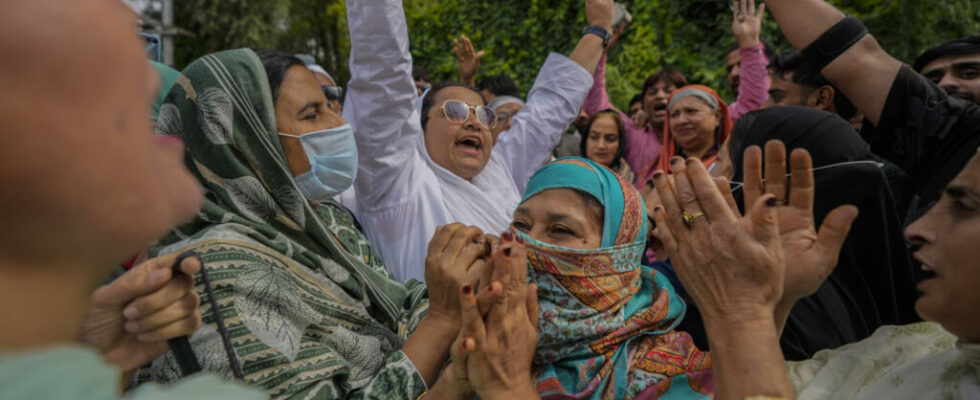For the first local legislative elections in ten years in this predominantly Muslim region, the opposition won against the party of Narendra Modi. In 2019, the Prime Minister gave in to the long-standing demands of the nationalist far right, by removing all autonomy from the region. Since then, Kashmir, with a Muslim majority, has been split into different regions, and elections were officially organized in Jammu and Kashmir, a new state designed by Narendra Modi. To understand what is at stake in the election and what the opposition’s victory means, RFI asked three questions to Jean-Luc Racine, Emeritus Research Director at the CNRS and senior researcher at the Asia Center think tank.
4 mins
RFI: For this first election since 2014, many questions surrounded participation. How do you analyze the mobilization of Kashmiris?
Jean-Luc Racine : The participation figures, 63%, are almost within the norm for Indian elections which are often between 60 and 70%. For many local analysts, this was an opportunity for Kashmiris to make their voices heard. And she did not speak out in favor of the government of Narendra Modi. It must be remembered that we are in a context marked by the hegemonic imprint of the BJP (Bharatiya Janata Party), the nationalist party, which would have liked to establish its domination over Jammu and Kashmir. The climate was quite heavy, the opposition leaders were kept under house arrest for a long time after 2019. Added to this is the fact that the main Muslim religious leader of Kashmir was not always able to serve and that he was also placed under house arrest for a period of time. The BJP had also prepared the ground for several months by redefining electoral constituencies. Seven additional seats were granted to Jammu, that is to say to the area which is populated by 84% Hindus and only one more seat for the Kashmir valley which is populated by 97% Muslims. In this context, we can say that it is a fairly strong participation. And according to local observers, opponents of the BJP seized this opportunity to manifest themselves, in particular with Muslim parties like Jaamat-e-Islami and a new political formation. So, they didn’t perform a miracle, but the results show that the electorate seized the opportunity. An opportunity that he had of course been asking for for years.
Is this opposition victory a snub for Narendra Modi?
Yes, it is to the extent that this electoral campaign was very violent. The fight between the BJP on the one hand and the coalition which took the acronym INDIA, led by the Congress party and other opposition parties, materialized in a particularly tense political life. The BJP called for voting for him to fight against “ corruption, terrorism, separatism ”, as if these were values held by the Congress party. And if the Congress only obtained approximately 12% of the votes in this election and therefore only has 6 elected representatives, its partner has 42, so it clearly dominates. But above all we have just had proof that to defeat the BJP, which is the leading party in the country, coalitions are needed. And it worked in Kashmir, beyond what the polls predicted.
And can this narrow majority obtained in the local Assembly change the situation for the future of the region?
The coalition’s program is of course to restore Jammu and Kashmir to the status of a state of the Indian Union, no longer just union territories. But this cannot be decided only in Srinagar [capitale du Cachemire, NDLR]. In 2019, the BJP carried out a maneuver to change the status of the region. Theoretically, article 370 of the Constitution, the one which guaranteed a certain number of margins of autonomy, was provisional. The rule was that it could only be changed on the advice of the Kashmir government, the Kashmir Assembly. However, when the BJP, in 2018, withdrew from the local coalition in which it participated by bringing down the government, they were careful not to hold new elections. Using the pretext that there was no government or regional assembly, New Delhi transferred the right to decide on Kashmir to the National Assembly. As the BJP and its allies were in the majority, the reform passed. We can therefore wonder about the future of Kashmir. Will the status of the region be able to be decided on the spot since now there is an elected Assembly or is everything still being decided in New Delhi? It is not excluded that the BJP sends a signal to Kashmiris by agreeing to return to the state prevailing before 2019, not in terms of autonomy, but on the status of the region. It could once again become a State of the Union, therefore with a greater margin of autonomy than that which it enjoys today.
Also readLegislative elections in India: an opposition coalition leads the results in Jammu and Kashmir
